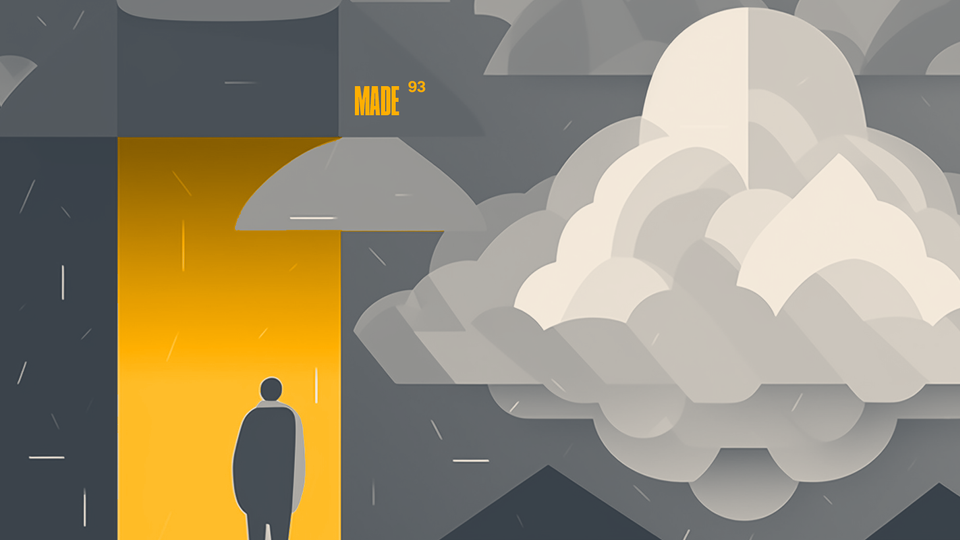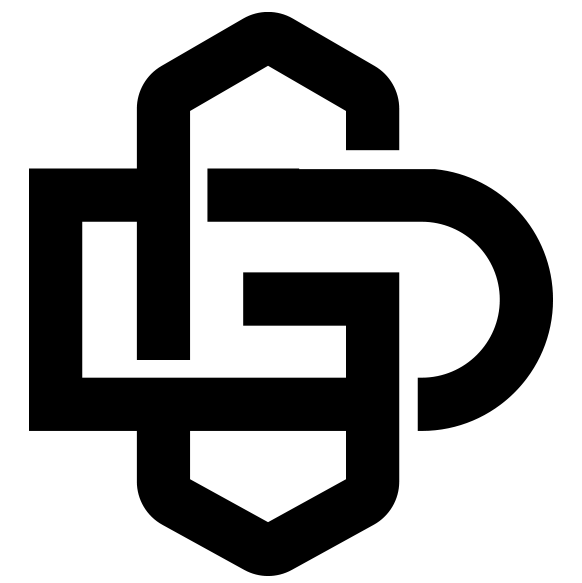
What happens after the Open Web closes? Seven ways to make trust make growth in this brave, new (old) world.
MADE Edition 93
Last week's MADE Edition 92, "The Web-ending Whimper" hit a throbbing nerve. It surprised even me. Because I've spent the better part of the last 18-months cataloging the degradation of the Open Web, I thought much of this was common knowledge.
I was wrong.
So many of you reached out. We booked calls with new relationships on just that one article. Partners of ours used the article for their in-house training. "If this is true—and we think it is—we've got to think differently than we have been."
And the question that came up again and again was, "So what do we do now?"
I could just say, "Hire us," which is a not-so-terrible option for many of you. We've expanded our engagement options to be more accessible for start-ups and marketing leaders who don't have enterprise budgets (yet). And we have high-impact short-term programs to get any size venture good answers about "what's next for us" in less than 8 weeks.
Regardless of which program you choose, you have to be willing to let us take you by the hand to lead you to the next place. This is worth it, if you're ready.
As one client said to me in an email this week:
Today has been one of those days where my interactions with you have just been another reminder of how good you are and how good you are for our team and for me personally.
After the Web
I don't need you to trust me that the Open Web is over, and with it, two decades of marketing's often-false promises. The evidence is everywhere and I can document 20 different good sources for you to review to validate it.
What I need you to trust is that you can and should find the perfect clients for you. You should grow with strength and wisdom. I need you to trust that there is a deeply hidden truth that makes your venture worthy, powerful, and good. And I need you to see that good is being hidden and obfuscated by a hundred often well-meaning activities separating you from your best clients and prospects.
It's time to triage the past to find the future.
As the Open Web closes, an era of trust shortcuts and workarounds closes with it. And now you must begin on a new era of Trust-Made Growth™️ in a post-trust world. Here are seven jumpstarts. You can't and shouldn't do them all. But you can do one. Let's dive in.
Seven jumpstarts for trust in post-trust world
- Stop trying to figure out marketing. Marketing is a means to an end and is best integrated across your teams versus some siloed thing you do to "get leads." Marketing as you've probably known it is the least important thing for you to be doing now, and marketing as a cross-cultural discipline that impacts your whole organization is the most important thing you should be doing right now. Your growth strategy should be led by or advised by someone who understands the difference.
- Rethink your target client/student/customer. Most of what you've been told about your "ideal client profile" is horse-traded garbage designed to feed the 2015 ads engine on Facebook or Google's now defunct "first page" algorithm. There is a tiny fractional subset of humanity that thinks, feels, and demands what only you can provide. That tiny fraction is surrounded by a much larger community who is an 80% match for you. (Your Total Addressable Market.) You cannot reach the 80% without going ultra niche defined by psychographic, not demographic, clarity. Think much, much, much smaller. (We are actively working through this with clients in $100M+ revenue category and with startups. It applies to EVERYONE.)
- Exchange your funnel for a mountain. You've been led to believe that you build a giant funnel where thousands of people slip in and then they slide down a greased slope into the hands of your loving sales team who can then cherry pick and close on the right people for you. You keep paying people to build that funnel. It doesn't work because that's not how people work. People buy stuff that matters to them not by accidently sliding their way into a sales call, but by climbing the mountain of trust.

- Build a ladder up the mountain. What's the very first thing someone should do if they want to trust you without talking to you? (It better be free.) What should they do next? What should they do for the six months they're not even sure what they need but still want to learn from you? How do they buy from you at minimal risk? What do they buy next? What is your mountain top experience that every client should aspire to work toward and get the very best of what you do? The answers to the questions make a value ladder. If you don't have one, you need one. Yesterday.
- Fix your decision engine. Organizations who demand trust to grow have hard decisions to make. The Open Web and its marketing tactics decimated trust. Trust is rebuilt by how we make decisons together. The more decisive and collaborative an organization is, the more its ready for trust-made growth. The problem in most ventures is that "decisive" and "collaborative" often exist at opposite ends of a spectrum. Slowing down adoption of good decisions and/or making decisions impossible too reach because of codependent culture masquerading as teamwork. More than likely your presence in the marketplace is dramatically hampered because you haven't clearly decided how to decide.
- Get over loss aversion. In times of rapid change (like we're in how) the Sunk Cost Fallacy is fast-acting poison. If you're thinking "well, we're already down this path so we've got to keep going..." or "we should have made that change two years ago but we didn't now we can't...," your fear of losing what you have is keeping you trapped. Fear and ego are running rampant in the post-trust world. But they don't have to drive your decisions. You can and should pivot. Pivot where... See #7:
- Do the next right thing. Talk to someone who challenges your thinking. Ask the question your afraid to ask. Get time with the people who are pushing you out of your comfort zone. Call out the elephant in the room. The adveritisng and algorithmic takeover of the last 20 years demanded we all sit back and wait for the bots to inch us toward what to do next. The recommendation systems of the Internet polluted our internal gut clarity. And most dangerously for your venture, it put community, education, and middle-market businesses under the thumb of the megacorps. But you don't have to play along. The pathways are open now to move forward. Just take a different step.
My work is the lay out the map for ventures who live by trust to thrive in a post-trust world. We've spent the last five years building tools, resources, training, and structures for growth for ventures like yours to step out of the shadow of the past and into your next era of growth.
We do it by thinking in public (what you read here on Editions) and thinking in particular through our engagements and 1:1 conversation with all of you. My favorite thing to do is to talk 1:1 with you who have questions or thoughts. You know where to find me.
Forward, forward.
Stay brains on, heart open, forward progress.
